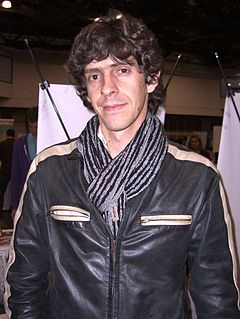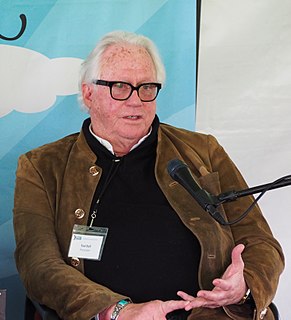A Quote by Deb Caletti
You never know how - or when - the idea for a book will appear.
Related Quotes
I think I write or publish as much as I do because I can bear being without a book to work on. But routinely when I finish a book, I think, "What will I do? Where will I get an idea?" And a kind of low-level panic sets in. And then eventually something happens. I don't know. If I knew how it happened I would repeat the process, but I don't know - something just occurs to me.
"The Diagnosis" is by far my most ambitious book. I such great hopes for it... there was so much I wanted to do with the book. I was extremely insecure about it for several years. Just didn't know whether I would finish the book much less for it to come close to what I intended. I think that for any novel you never know exactly how the book is going to turn out...
It's so exciting when a book catches traction you didn't even expect (or completely did expect!), and so frustrating when a book never quite catches the traction you know it deserves. But either way it doesn't change the book, it doesn't change how much I love that book, or how thrilled I am to be publishing it.
If you invent two or three people and turn them loose in your manuscript, something is bound to happen to them -- you can't help it; and then it will take you the rest of the book to get them out of the natural consequences of that occurrence, and so first thing you know, there's your book all finished up and never cost you an idea.
How did it happen that an enlightened country like Germany was pulled into Nazism? That question has occupied me since 'The Tin Drum,' my first book. The story also shows that we can never know how a person's life will unfold; there is no guarantee that a person will do what is right and avoid what is not right.
I will never have a photograph of her to carry around in my pocket. I will never have a letter in her handwriting, or a scrap-book of everything we've done. I will never share an apartment with her in the city. I will never know if we are listening to the same song at the same time. We will not grow old together. I will not be the person she calls when she's in trouble. She will not be the person I call when I have stories to tell. I will never be able to keep anything she's given to me.





































